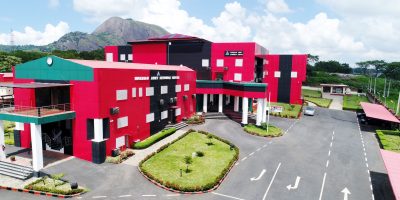The Director General (DG) of the Nigerian Army Resource Centre (NARC) Maj Gen Johnny Hamakim (rtd) has said the ability to speak local languages proficiently is a key requirement for operational success of the Nigerian Army (NA).
This was revealed in his inaugural opening remarks for the second indigenous languages’ course for officers and soldiers of the NA at the Centre. The DG asserted that ethnic pluralism combined with large population if not properly managed, pose serious challenge in the management of internal security as seen in the proliferation of ethno-regional groups across the country.
He said it is against this backdrop that Officers and Soldiers of the NA need to be proficient in indigenous languages, particularly the three major languages; Hausa, Igbo and Yoruba to be adequately fitted into domestic security environment and be on top of the challenges.
Maj Gen Hamakim stressed further that a key requirement for success in the human domain of operation is the ability to communicate with the local population, which hinges on mastery of local languages in the operating environment. He said these realities informed the vision behind the collaboration between NARC and Laclic Services Nigeria Limited a leading language and cultural institution in Nigeria.
[images_grid auto_slide=”no” auto_duration=”1″ cols=”three” lightbox=”no” source=”media: 4450,4451″][/images_grid]
In his introduction to the courses to the participants, the Managing Director (MD) of the Laclic Services Nigeria Limited Chief Ndubuisi Nzenwafor said the aim of the institution is to make as many people as possible to become multi lingual in this age of information technology. Chief Ndubuisi said the training sessions are expected to be interactive and communicative between the participants and facilitators.
He explained further that trainings will be held in conducive and relaxed environment where the participants will be introduced to practical learning that will impart positively on the desired objectives of the training program within the context of international cooperation that now exist across borders
The MD said that the officers and soldiers need to be able to communicate not only with the language of the enemy but also with partners within different national forces. He said however, being able to speak another language as well as English is highly beneficial to military personnel and will allow soldiers to socialize with local communities where they are deployed in Internal Security Operations.












